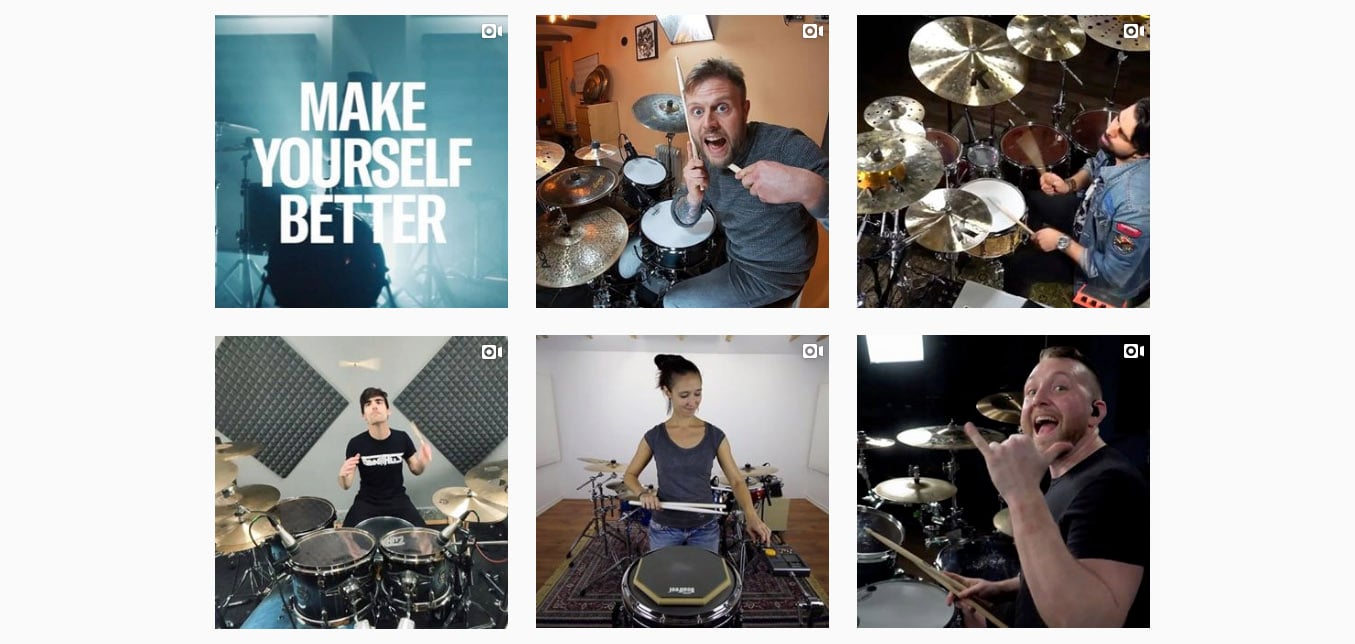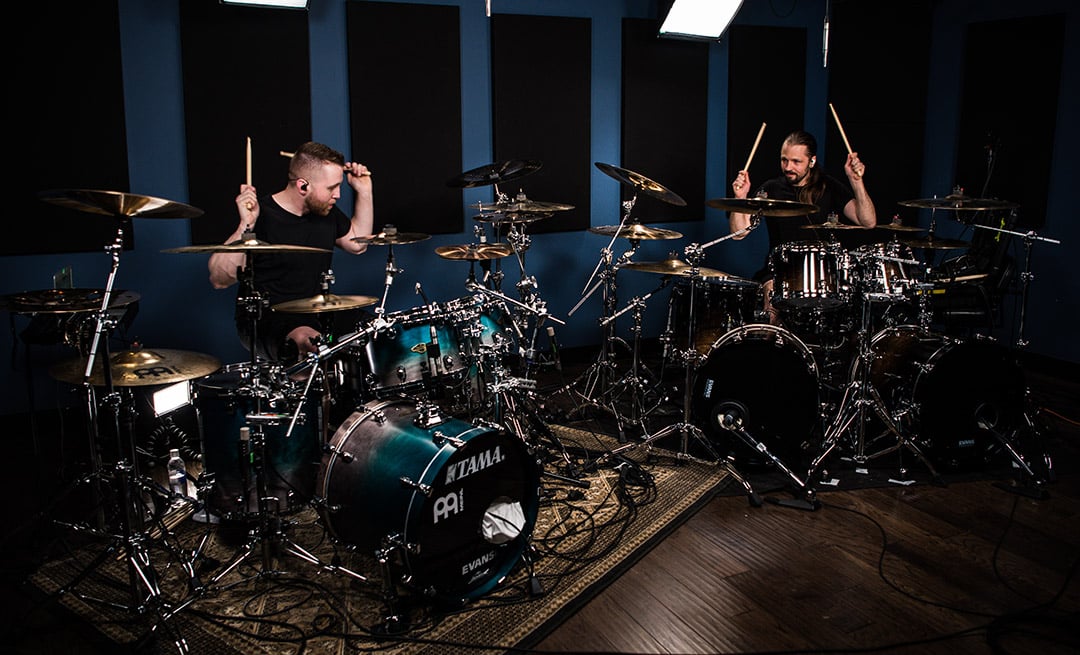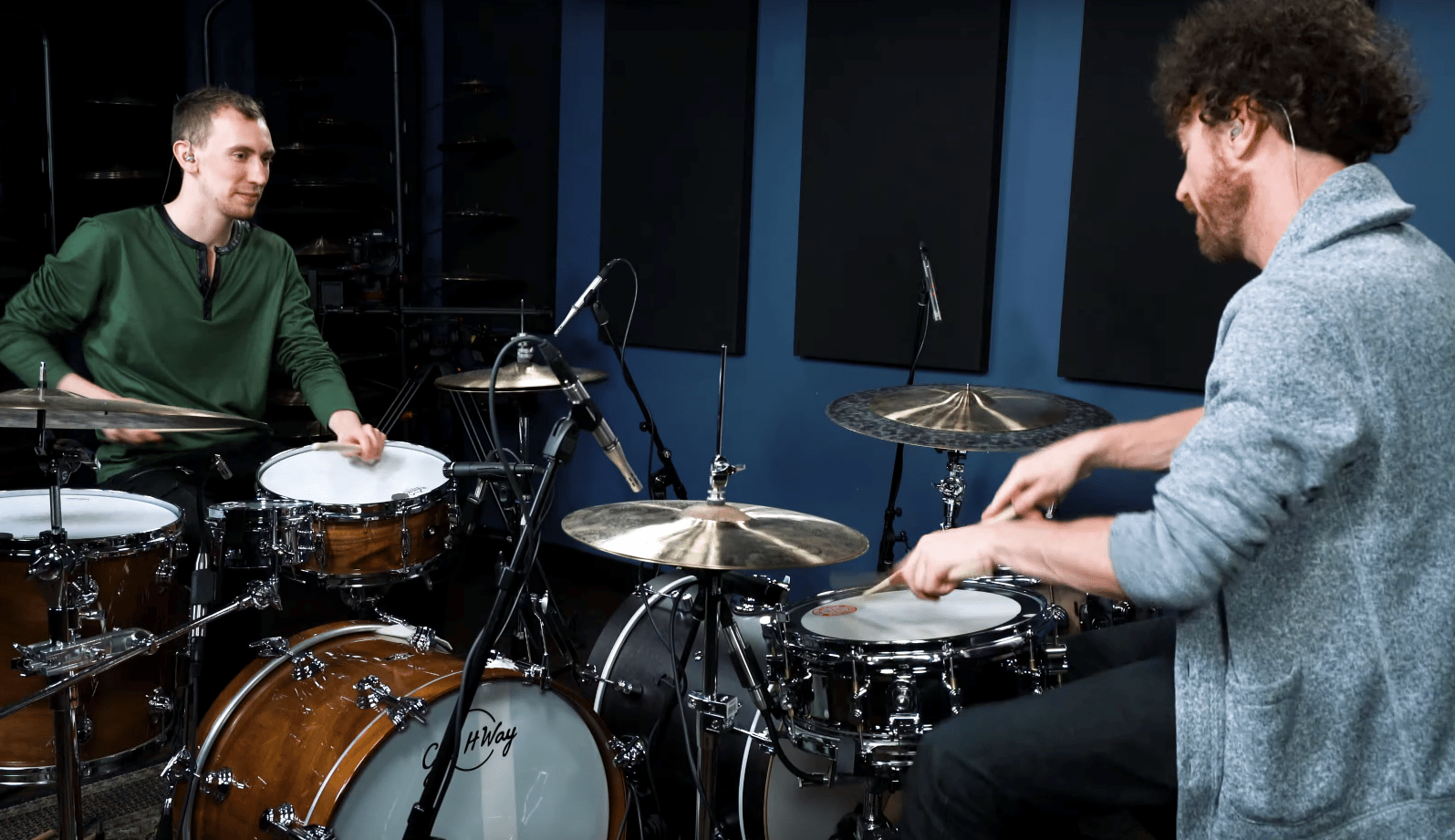
Social media lays out endless streams of videos where we can compare our drumming ability against thousands of other drummers. These videos can help us, of course, by comparing our playing with seasoned veterans to improve our skill set. However, unrealistic comparisons can lead to frustration and “inner talk” of not being good enough, fast enough, and so on.
Let’s pull some insights from the field of Social Psychology – how we think and behave in social situations – and talk about ways we can constructively watch videos on social media without getting pulled into the trap of over-comparing your playing with everyone else.
Many posts shared on social media are highly practiced and edited before you see them. The video of some amazing blur around the drums is likely due to hours of practice and multiple takes. Nevertheless, we are fooled. To us, we should be able to watch it and pull off whatever is being demonstrated without mistakes. That is the mental trap: we perform instant comparisons of our own ability with someone else’s.
For example, if you go outside and see a person driving a sleek new car, you may instantly compare yourself to them: “That car is better than mine”, “they have a better job than me”, “they have more money”, etc. It is a natural human tendency to compare ourselves with other people, and psychologists have termed this tendency Social Comparison Theory (Festinger, 1954).
Now back to our drumming example. After watching some amazing players online, it is probably true that you have not practiced the same material they are playing in the video. Therefore, there is already a mismatch between you and that person as it relates to familiarity with the drum piece. There is little chance you can play like that instantly unless you put in a reasonable amount of time learning the groove, fill, etc.
It is probably true that you have not practiced the same material they are playing in the video. Therefore, there is already a mismatch between you and that person.
If you can rationally assess that the person is better than you at playing that particular drum piece at this particular moment, you can avoid generalized self-criticism. Compartmentalize the experience and you will avoid common mental pitfalls of watching social media drumming.

Maybe you want to learn that 60 second clip on Instagram and become as good of a drummer as they are. This is certainly healthy and most psychologists would encourage this type of upward comparison, where you compare yourself to someone who is better than you as a way to improve your skills. Try to become inspired by drummers who are better than you.
Before social media, we were used to seeing and hearing great professional drummers on TV and the radio. But today, many people can display their talents and sometimes the “average” drummer can actually be very good! So we are in a new era of information presentation and sharing. Avoid becoming angry or jealous about the latest Facebook or Instagram post; instead use it as an opportunity to improve.
Try to become inspired by drummers who are better than you.
Psychologists often use the term “cognitive reappraisal” when we need to re-think a negative situation, and view it as more positive. Research shows that people are happier, healthier, and less stressed when they can intentionally perform positive cognitive reappraisals (Pastorino & Doyle-Portillo, 2019). In other words, positive appraisals are like mental “tools” for you to use when you need to modify a harmful/negative event into a more challenging/positive one.
Finally, we have all probably heard the phrase: compete against yourself. That is a psychological way to get better at anything, including drums. Many sports teams also employ this mental strategy. They will often say they are not competing or worried about the other team. Athletes learn to not compare themselves too much with other teams as they are wary of mental distractions. This certainly applies to getting better at drums and I would suspect that some of the top drummers likely use the “competing against yourself” strategy rather than focusing on competing against other people.
Try these tips to improve your own playing:
Use social media to connect, not compete. If your focus is on self-improvement and connection, you will more fully understand how to get better at your instrument. A self-improvement focus will give you confidence about your skills, clarity about how to keep improving, and a more satisfying understanding of who you are as a drummer. The social connection piece will highlight numerous fellow drummers who can help you improve many facets of your drumming.
Let’s face it – we are all on this rhythmic journey together. As the great drummer and global ambassador for drumming, Dom Famularo, is fond of saying: “If we all work together, we can all enjoy the success!”
Frank Ferraro is an adjunct professor of psychology at Midland University. He also teaches private drum lessons at home and at Guitar Center in Lincoln, Nebraska.


By signing up you’ll also receive our ongoing free lessons and special offers. Don’t worry, we value your privacy and you can unsubscribe at any time.
We use cookies for traffic data and advertising. Cookie Policy »